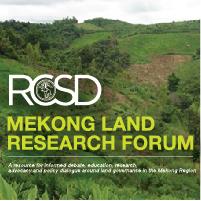Resource information
Land redistribution and agricultural collective production were the key components of agrarian reforms implemented by the Vietnamese Communist Party in the south of the country after 1975. Land inequality was serious in the region under the Republic of Vietnam's regime. The new government struggled with agricultural collectivisation contributing to the decline in rice productivity. This study explains the persistence of a market-based agricultural production in the southern economy under the new political regime. Beside the economic reasons and arguments of local peasants' everyday politics cited in the literature, we argue that the de facto political power of the middle-class landowners was an important factor impeding the performance of agricultural cooperatives. It also implies that agricultural productivity was more vital than land inequality during the study period. We apply the model of Acemoglu and Robinson explaining how de facto political power helps elites to maintain their economic institutions in spite of a political change.


